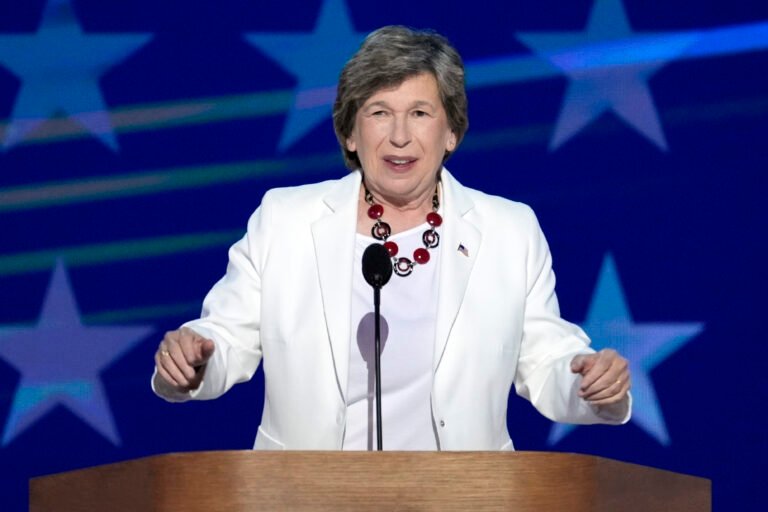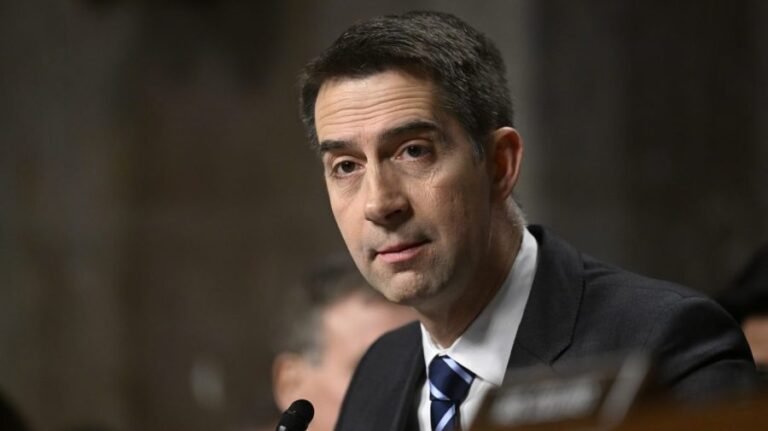
Health and Human Services Secretary Robert F. Kennedy Jr.’s moves to upend decades of vaccine policy could hit patients hardest in their wallets, as shifting guidance over shots could make insurance coverage confusing and scattershot.
For decades, the Centers for Disease Control and Prevention’s (CDC) independent advisory panel recommended which shots Americans should get and when.
The Affordable Care Act requires all insurance companies to cover, for free, all vaccines the panel recommends. Those recommendations also help states decide which shots should be mandated for schoolchildren.
Kennedy’s most recent move to purge the entire advisory panel and replace them with his own handpicked members, including several vocal vaccine critics, is throwing that process into doubt.
“If we have a system that has been dismantled — one that allowed for open, evidence-based decisionmaking and that supported transparent and clear dialogue about vaccines — and then we replace it with a process that’s driven largely by one person’s beliefs, that creates a system that cannot be trusted,” Helen Chu, a newly ousted member of the panel and professor of infectious disease at the University of Washington School of Medicine, said during a press conference.
Vaccine prices vary, but without insurance, coronavirus vaccines can cost nearly $150, the MMR shot ranges from $95 to nearly $280, and the HPV vaccine can exceed $300, according to CDC data. Individual pharmacies could charge even more.
Candace DeMatteis, policy director at the Partnership to Fight Infectious Disease, said she worries about creating a two-tiered system.
“Out of pocket costs for vaccines become an issue where we could end up with a system where some people can afford vaccinating themselves and their families and others cannot,” DeMatteis said.
Prior to enactment of the Affordable Care Act, vaccine coverage varied significantly depending on the type of insurance a person had. If the CDC’s Advisory Committee on Immunization Practices (ACIP) changes recommendations for existing vaccines or doesn’t recommend new ones, maintaining access will be difficult.
“It’s a seismic shift, if you will, away from facilitating access by removing coverage and cost barriers, to one where there’s great uncertainty and coverage and cost issues become barriers,” DeMatteis said.
It’s not clear what the vetting process was for the eight people Kennedy appointed to the ACIP, or how prepared they will be for their first meeting, which is scheduled to occur in less than two weeks.
According to a Federal Register notice, the panel is scheduled to vote on recommendations for COVID-19 vaccines as well as meningococcal, HPV, influenza, and RSV vaccines for adults and maternal and pediatric populations.
Health experts said they have serious questions about what direction the new panel will take and whether Americans will still have access to free vaccines, including the coronavirus shot, in time for fall respiratory season.
If the ACIP is no longer a reliable, independent authority on vaccines, it “will be replaced by a patchwork of different policies by different states, and each state will have to make its own decisions,” Chu said.
“Washington state is a place where we have experts and scientists who work together. There are other states where this may not exist, or where they may not choose to recommend vaccines. So that is going to create a lot of chaos,” she added.
Some state health officials have already begun taking steps in that direction.
The Illinois Department of Health said on social media it will be convening its own vaccine advisory committee and national experts “to ensure we continue to provide clear, science-backed vaccine guidance for our residents.”
When Kennedy unilaterally changed the COVID-19 vaccine guidance earlier this month to remove recommendations for pregnant women and change the open recommendation for children, the Wisconsin Department of Health Services said it would continue to recommend the shots for every person at least 6 months old.
“The recent changes in CDC guidance were not made based on new data, evidence, or scientific or medical studies, nor was the guidance issued following normal processes,” the agency said in a statement.
Tina Tan, president of the Infectious Diseases Society of America, said her organization as well as other major medical groups including the American Medical Association and the American Academy of Pediatrics Academy have been speaking with insurance companies to urge them to continue paying for shots, even if the panel changes recommendations.
Tan mentioned an initiative launched in April by a group of public health experts called the Vaccine Integrity Project, which is working to create an alternative process to maintain vaccine access.
The initiative is funded by a foundation backed by Walmart heiress Christy Walton and led by Michael Osterholm, director of the University of Minnesota’s Center for Infectious Disease Research and Policy.
Federal law is specific that insurance provisions are tied to the ACIP. Specialty organizations may have expertise to make their own recommendations, but they will still require the cooperation of insurance companies. States are also more limited, and they don’t have the same power as the federal government to force coverage.
“I think it remains to be seen what the insurers are going to do,” Tan said. “However, hopefully, with the discussions going on, they can get the insurers to understand that vaccines are extraordinarily safe and effective and are the best tool that we have to protect persons of all ages against serious vaccine preventable diseases.”


